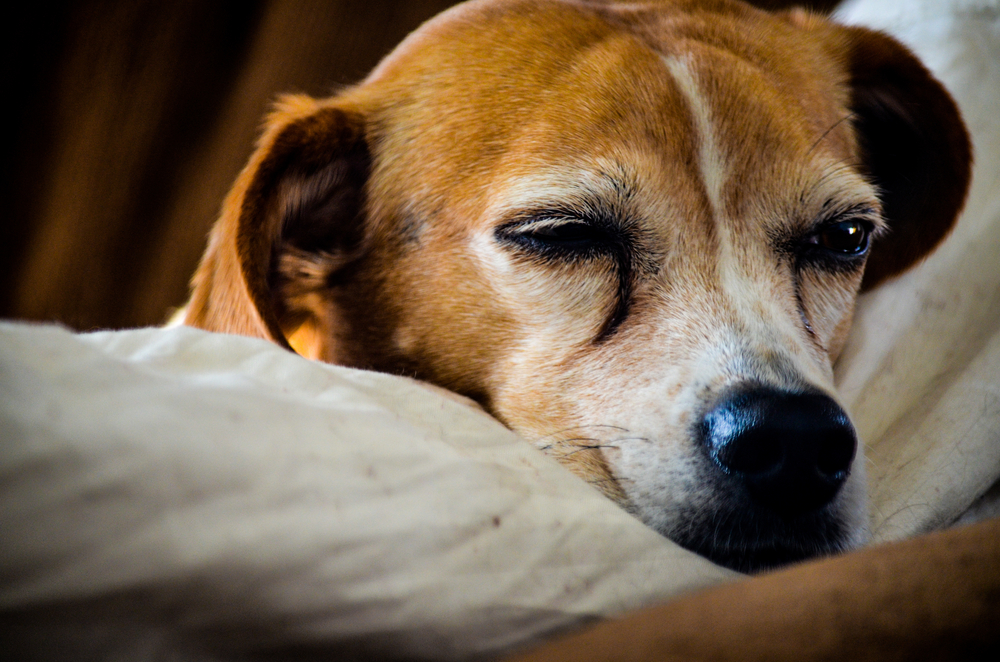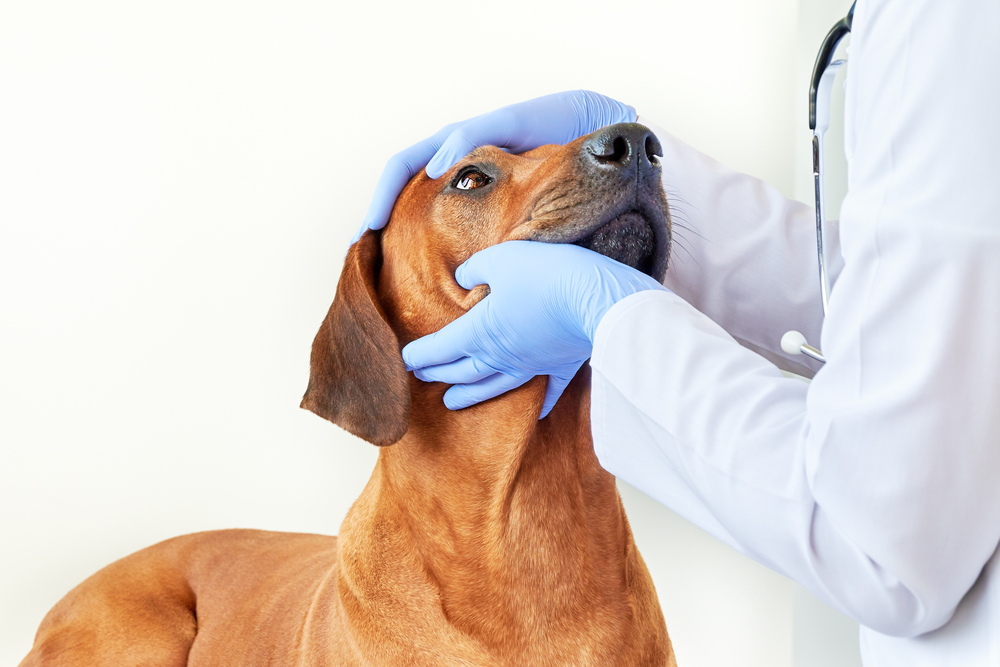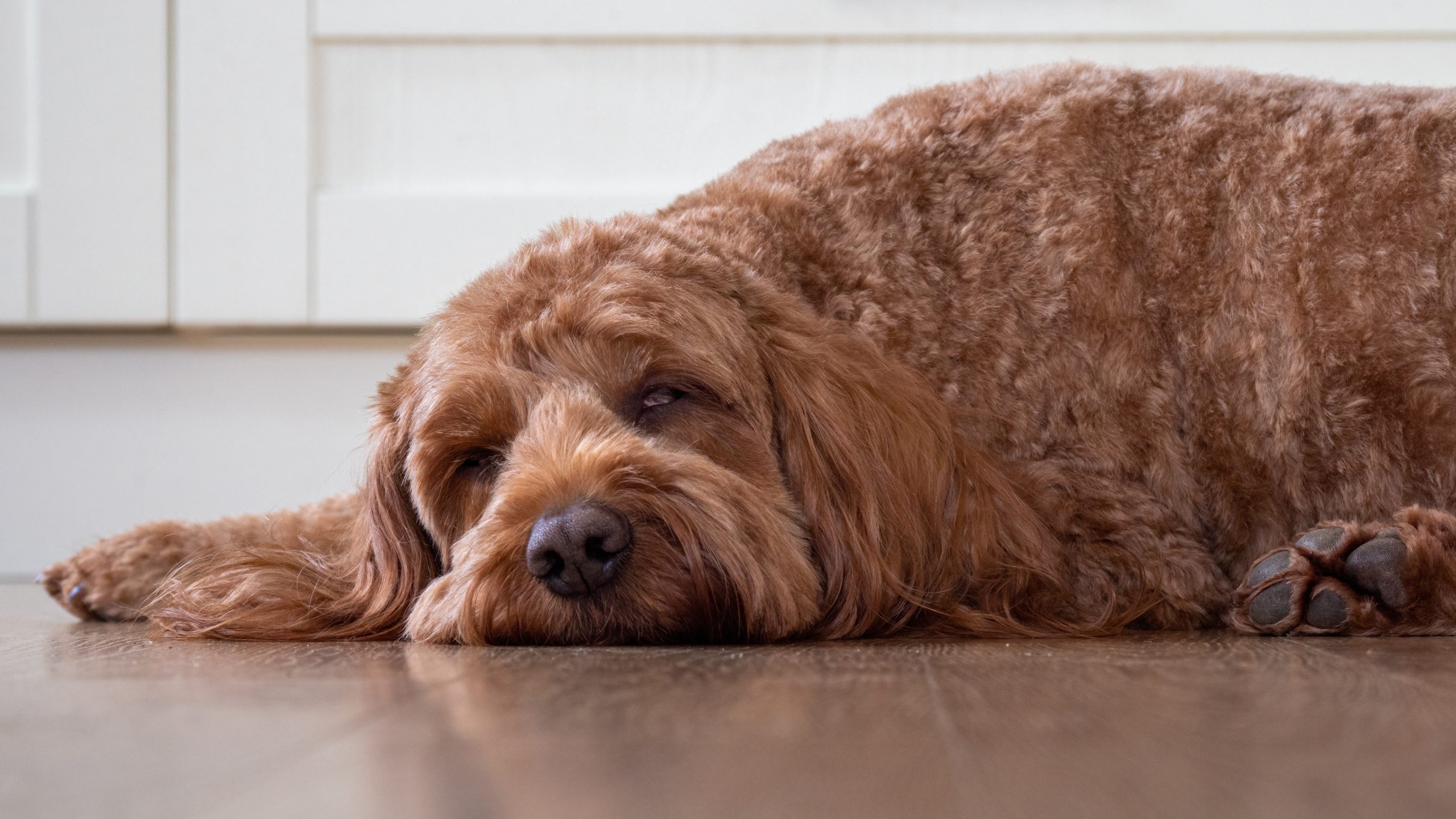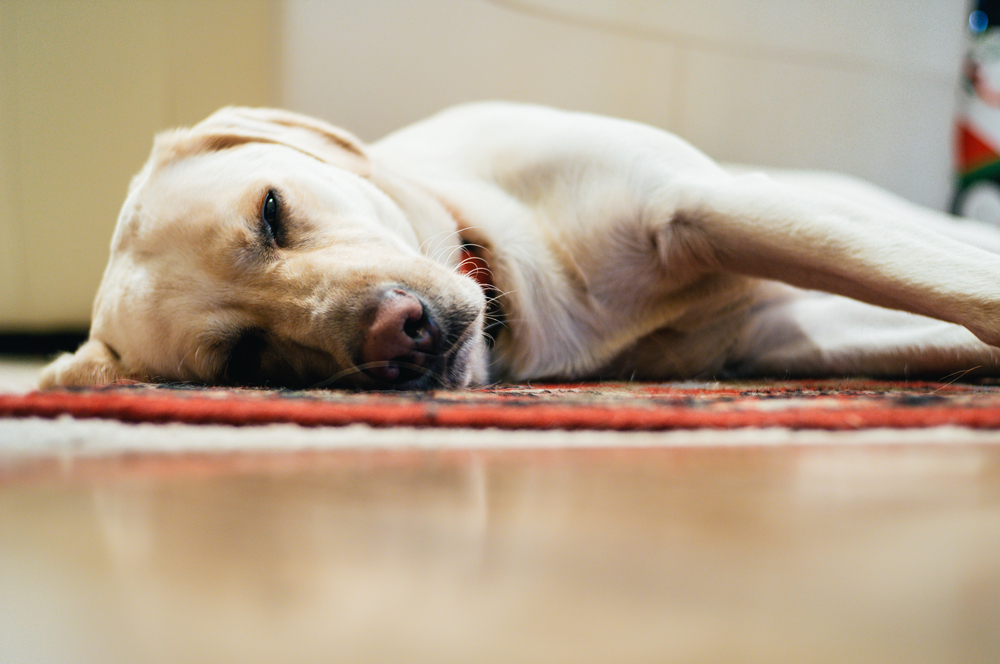Click to Skip Ahead
Dogs can have strange or unique sleeping habits, and it can take us time to get used to them. Sometimes, dogs may startle their owners by barking in their sleep or sleeping with their eyes partially open. In many cases, dogs sleeping with their eyes open is normal, and it can happen frequently or occasionally.
However, sleeping with eyes open may sometimes indicate an underlying health concern that requires medical attention. When in doubt, it’s best to consult your veterinarian to determine if your dog’s sleeping patterns and behaviors are healthy and normal.
The 4 Possible Reasons Why Dogs Sleep With Their Eyes Open
It’s not completely certain why some dogs sleep with their eyes partially open, and there can be several possible reasons for this fact.
1. Dog Isn’t Fully Asleep

Sometimes, you can catch your dog in the moments just before they’re about to fall into deep sleep. Dogs can be very still during this stage preceding sleep, and it can appear as though they’ve fallen asleep while their eyes are still open. However, it’s possible that they’re just feeling very relaxed and are nearly ready to doze off.
2. Nictitating Membrane
Dogs have a “third eyelid” or a nictitating membrane. It’s a pinkish membrane located in the inner corner of your dog’s eyes and it acts as a protective layer for your dog’s eyes by swiping diagonally across the eyeball. Usually, the nictitating membrane becomes visible when your dog is dozing off, and it may appear as though your dog’s eyes are open.
3. REM Sleep

When dogs fall into deep REM sleep, they may start to twitch or move a little bit. They can also bark or whimper during REM sleep, and their eyes can sometimes dart from side to side.
It can feel alarming the first time you see your dog twitching and having their eyes open while they’re in REM sleep. However, it’s completely normal behavior that doesn’t require medical attention.
4. Instinctual Behavior
One theory that has not been scientifically validated is that dogs sleep with their eyes partially open is due to an evolutionary advantage and protective instinct. In the wild, animals must protect themselves from natural predators, so it’s safer for them to be alert.
Sleeping with the eyes open can help dogs stay partially alert and aware of their surroundings while they rest. While domesticated pet dogs don’t have to worry about natural predators, they may still retain this protective instinct.
5. Medical Condition

Brachycephalic (short-nosed) dog breeds, like Pugs, French Bulldogs, Shih Tzus, and Boston Terriers can have a condition called lagophthalmos, which means inability to completely close the eyelids. Lagophthalmos is very common, it occurs due to their extreme anatomy. This causes dogs to sleep with their eyes partially open and predisposes them to a variety of eye problems. You should always speak to your vet if you notice that your brachy dog can’t close their eyes fully.
On other occasions, dogs may have neurological problems that prevent their eyelids from shutting. These dogs always require veterinary attention to understand the underlying problem and to address it immediately to prevent painful eye problems such as corneal ulcers.
When dogs experience a seizure their eyes are usually open fully or partially, or they experience rhythmic blinking. Seizures and REM sleep behavior can look similar on occasions. However, dogs in REM sleep will come to and be alert if you nudge them awake. Dogs experiencing a seizure will have more jerky movements and will have a distant look on their faces rather than a relaxed facial expression with their eyes half open.
When to Be Concerned
It’s recommended to consult your veterinarian if you have concerns about your dog’s sleeping patterns. Good sleep is essential for your dog’s quality of life and health, so it doesn’t hurt to get clearance and extra reassurance from your veterinarian that your dog is sleeping well.
If your dog sleeps with their eyes open consistently, it usually warrants a veterinary examination. Your veterinarian can assess your dog’s eyes and see if there’s a facial structure issue that’s preventing your dog from fully closing their eyes when they sleep. Sometimes, surgery may be required to correct this issue.
Dogs experiencing sudden inability to close one or both eyelids always require immediate medical attention. Along with sleeping with their eyes open, dogs with nerve paralysis may be unable to move their lips, ears, chew or swallow. If this occurs, your vet will likely do a full neurological examination and recommend blood tests and advanced imaging such as MRI or CT to be able to diagnose your dog and give you more information.
It’s also best to take your dog to your veterinarian if you notice any changes to the eyelids or the eye itself. Check your dog’s eyes for any redness, swelling, or change in color. Also, monitor your dog for any abnormal discharge around their eyes, pawing at them, or any difficulty opening their eyes.

Conclusion
If you catch your dog sleeping with their eyes partially open, you usually don’t have to be concerned. It’s normal behavior that can happen regularly or every once in a while. However, it’s still important to know when this behavior is caused by a disease or health issue. Therefore, be aware of the signs of seizures and other health concerns. It’s also better to be safe than sorry and contact your veterinarian if you notice that your dog’s eyes look abnormal or if you suspect that your dog sleeping with their eyes open is linked to an underlying health issue.
Featured Image Credit: Jacob Blount, Shutterstock














